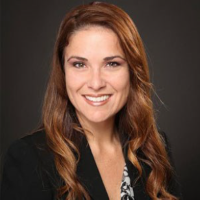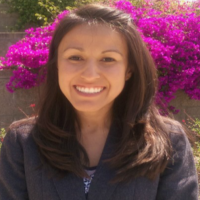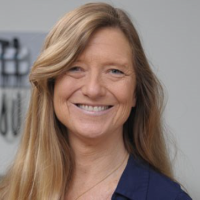
|
|
Project Director: Rachel Gonzales-Castaneda, PhD, MPH
Dr. Gonzales Castaneda is an addiction research psychologist and an Associate Professor at Azusa Pacific University. She has extensive experience in designing and evaluating prevention and treatment programs that address substance use disorders. Her expertise and research focus on prevention and disease management approaches, adolescent and young adult health, and cultural and social impacts on health status. In addition to her role as Project Director of the Faith & Spirituality Integrated SBIRT Network, she serves as a co-investigator on a large, multi-program evaluation of the youth system of care in Los Angeles County funded by the Department of Public Health, as well as an Associate Research Psychologist at UCLA Integrated Substance Abuse Programs (ISAP).
|

|
|
Co-Director: Mary Rawlings, PhD, LCSW
Dr. Mary Rawlings is a licensed clinical social worker and Chair of the Department of Social Work and the MSW Program Director at Azusa Pacific University. As an educator and program director, she is interested in competency-based education, assessing outcomes of social work education, and experiential learning models (i.e. service learning) that can enhance student education outcomes. Her research focuses on the development of observed structured clinical exams for evaluation of social work skills. As a licensed clinical social worker, she has more than 10 years of practice experience and is interested in women's issues and chronic and persistent mental illness.
|

|
|
Co-Director: Sheryl Tyson, PhD, RN, CNS
Dr. Sheryl Tyson is a psychiatric clinical nurse, a professor, the Associate Dean of Research, and the Executive Director of the Institute of Health Research at Azusa Pacific University School of Nursing (SON). She is a child and adolescent psychiatric clinical nurse specialist with extensive experience in treating children and adolescents with trauma related disorders. Her experience with substance abuse comes from having been a substance abuse educator and counselor for the Los Angeles County Drug Abuse Program Office, and from her position as a research scientist on substance abuse and suicide prevention research projects funded by the National Institute of Drug Abuse, The National Institute of Nursing Research, and the Center for Disease Control and Prevention.
|

|
|
Training Director: Sherry Larkins PhD
Dr. Sherry Larkins is a Research Sociologist in the UCLA Department of Psychiatry and is a Co-Director of Training for UCLA Integrated Substance Abuse Programs (ICAP) and member of the Pacific Southwest Addiction Technology Transfer Center. She has extensive experience as the training director at the Lost Angeles County, Department of Mental Health (LAC-DMH) and UCLA. She has been involved in substance abuse research for over 20 years and has led multiple epidemiological and clinical research studies. Her research includes stimulant abuse, substance abuse treatment for marginalized populations, and sexual risk behaviors associated with substance use.
|

|
|
Training Coordinator: Irene Valdovinos, MSW, MPH
Irene Valdovinos is the evaluation coordinator on the SBIRT project and oversees the development, implementation, and management of the training materials for the SBIRT student training. She coordinates communication between all stakeholders and oversees regulatory and administrative aspects of the project.
|

|
|
Faculty Preceptor Liaison for Psychology: Kathryn Ecklund, PhD
Dr. Kathryn Ecklund is a Licensed Clinical Psychologist and the Chair of the Department of Psychology at Azusa Pacific University. As a researcher and clinician, her interests are in the assessment and delivery of culturally sensitive mental health services for children and families. She has maintained an active clinical practice serving racial, cultural, religious, economic, gender, and sexually diverse youth, couples, and families. Since joining APU, her scholarship has focused on the inclusion of faith in the consideration of diversity dynamics, diversity identity development, and diverse relationships among Christian college students.
|

|
|
Faculty Preceptor Liaison for Social Work: Jennifer Payne, PhD, LCSW
Dr. Jennifer Payne is an Assistant Professor in APU’s Department of Social Work. Her research interests include developing culturally adapted community-based depression and trauma interventions and addressing minority mental health disparities. She is the Principal Investigator of the Urban Pastor's Project and the Clergy Depressive Counseling Survey, which surveyed pastors’ beliefs and treatment practices surrounding depression and mental health. Dr. Payne is also an Ordained Evangelist with the Pentecostal Assemblies of the World (PAW), and the Director of the Psychological and Social Resource Ministry. She is a trainer and consultant on mental illness issues through the Los Angeles County Department of Mental Health Clergy Training Academy.
|

|
|
Faculty Preceptor Liaison for Nursing: Lynda Reed, DNP, RN, FNP-C
Dr. Reed is the Director of FNP and AGNP programs at Azusa Pacific University and has 30 years of experience as a nurse, nurse practitioner, and nurse educator. Her research is on wellness and integrating primary care with behavioral health for chronic disease patients to improve coping and self-management. She was the first faculty member at APU to require that students practice SBIRT on their adult patients in the outpatient primary care clinical settings. Her NP background includes endocrinology, specifically diabetology, family practice, prenatal care and women’s health in low-income community clinics.
|

|
|
Evaluation Specialist: Alex (Chong) Ho Yu, PhD
Dr. Yu is an Associate professor at Azusa Pacific University and has extensive training in statistical methodologies, including exploratory data analysis, data visualization, resampling, and data mining, and multimedia learning. His interests are in alternate and emerging research methods, instructional psychology and technology, philosophical aspects of research methodologies, cross-cultural comparison, and the relationship between faith and science.
|
.JPG)
|
|
Research Associate: Janna Schirmer, BA
Janna Schirmer is the project research associate who assists the team with development, implementation, and evaluation of the SBIRT training.
|